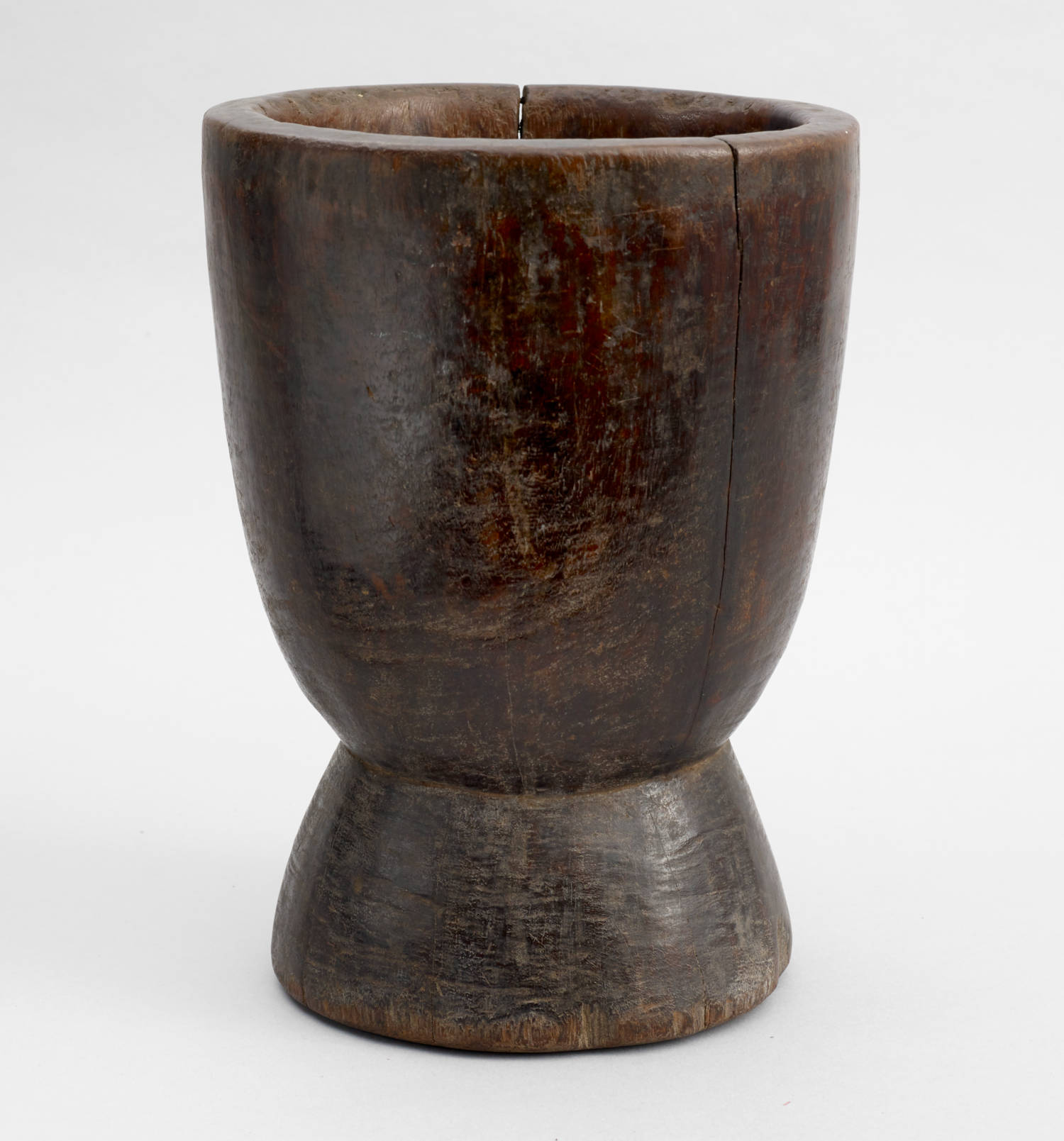
in 한국어 / Korean translated by Jin
This object has been translated into 8 different languages by 8 different users
이것은절구공이로음식을가는데쓰이는절구통입니다. 아프리카의잠비아에서땅콩을갈아서땅콩버터를만들기위해쓰였습니다. 땅콩은가뭄에매우민감한데, 기후변화에그공급량이심하게영향을받을수있는작물중에하나입니다. 다시말해서땅콩버터가언젠가는고가의사치품이될수도있다는말이지요. 세계의식량생산은기후변화로인해엄청난변화를겪을가능성이높습니다.
여러분이좋아하는음식중에서이와같은영향을받는것이있나요?
Do you have something you’d like to say, in your own language or English, about the object or translation? We’d like to hear what you think.
Translations are community-sourced and for anyone to participate in, however you use your language. For more information, see Community Guidelines.
17 Sep, 2023
I believe bananas may become extinct – as soon as 50 years but not sure if that’s due to climate change. Apparently they used to taste a lot sweeter about 100 years ago. I imagine the taste of other fruit and veg will be affected by climate change also. Wouldn’t surprise me if the production of potato’s was affected too due to drought. Wine could possibly by affected too as I believe fish guts are used to make wine which is actually pretty disgusting!
6 Sep, 2023
රටකජු වැනි සියුම් ඇට වර්ග කෙටීමට භාවිතා කරන වංගෙඩිය
2 Aug, 2023
Se usa el mortero con su pareja, la mano, para moler los manís y para hacer mantequilla de maní. Ademas, se pueda usar este herramienta para moler eel café. Este mortero es de Zambia (pero hay otros de otros países). Desafortunadamente, las plantas de los manís son muy susceptibles a la sequía. El cambio climático los afecta ademas. Por lo tanto, es posible que mantequilla de maní vaya a ser uno lujo, disponible solamente para las ricas. Dentro de unos años, el cambio climático causara muchos cambios en la la producción de la comida global.
(No me gusta mucho mantequilla de maní, pero tengo un montero y mano en me cocina. Lo uso para moler mis semillas favoritas, como las semillas de comino.)
Hay productos cuales sera afectados por el cambio climático?
25 Apr, 2023
In Amharic, audio
31 Mar, 2023
Further notes on the topic by Federica
Notes on culture
It may be surprising to know that coffee is the second most consumed beverage in the world after water. Italians take coffee very seriously. Recent statistics show that Italians consume an average of 5.6 kg of coffee per capita per year and that around 8 million bags of coffee are imported into Italy every year.
For most, if not all Italians, espresso is something sacred. In Italy, if you simply order a ‘coffee’, you are served an espresso. The term ‘espresso’ is synonymous with ‘freshly made’. In Italy, espresso is enjoyed throughout the day, for a short break, usually at the bar counter or directly at the coffee machine.
A recent study published in the journal PLOS One provided a model showing how growing conditions for coffee will change in the next 30 years. Notably, it shows that coffee will be one of the most affected crops by climate change.
As temperatures rise there will be more droughts, an increase in the range of diseases for the crops and many insects that pollinate coffee plants are likely to die from the heat. It was predicted that by 2050 the number of regions that will be able to grow coffee beans will decline by 50%. It will probably impact some of the most common coffee-producing countries such as Brazil, Vietnam, Colombia, and Indonesia.
The Coffee Research Institute, funded by the Kenyan government, is therefore trying to find alternative ways to help farmers adapt, encouraging them to cultivate Robusta plants (another type of coffee, different from Arabica), which are normally more resistant.
Another option could be to investigate new coffee varieties. Researchers at the Royal Botanic Gardens in Kew, London, are studying a wild type of coffee, Coffea stenophylla, first recorded by a Scottish botanist in 1834. Coffea Stenophylla tolerates heat better than Arabica, being able to grow at higher temperatures, almost 6.8°C higher on average.
None of these solutions is conclusive for the time being but one thing is certain, the way we grow coffee beans will have to change very soon but the world should hopefully still be able to enjoy their morning cup of coffee.